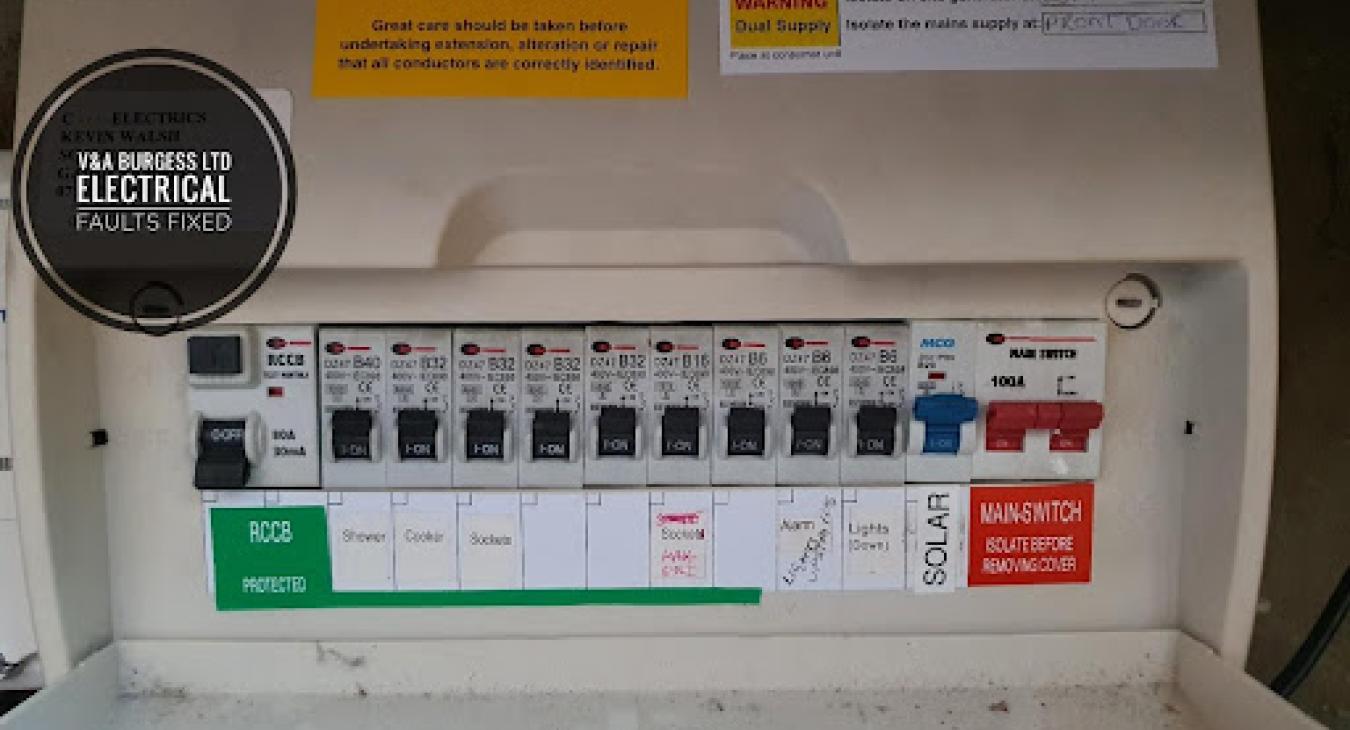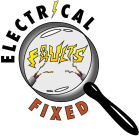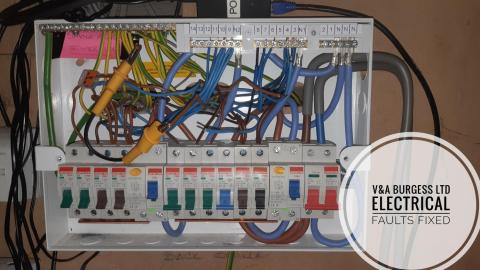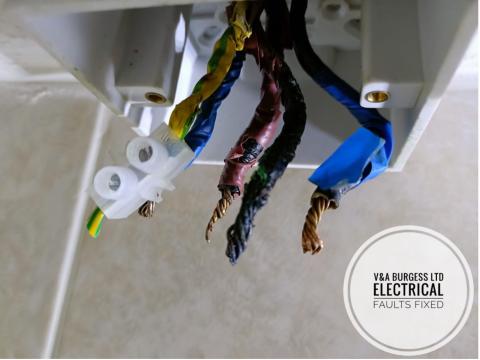
1) Let us talk about strange noises...🔊
If your fusebox is making popping sounds, switches are tripping, buzzing, crackling or even a “LOUD BANG FROM FUSE BOX” has happened then you really need to take notice of this. These kinds of noises can mean serious problems for your fusebox and electrical installation as a whole. When these kinds of noises are allowed to carry on without professional investigation, things invariably get worse not better.
The electrical system in our homes is generally a very quiet and humble system that works away in the background without really interrupting us and without us giving it a second thought. It is one of THE MOST neglected parts of our homes and yet, one of the most vital. Little is known generally about the need for inspecting and testing the electrical system in our homes, but it is VITAL that a regular MOT type inspection is carried out by a suitably qualified professional.
Without this type of inspection occurring regularly, all sorts of issues can occur, causing havoc when the electric goes off.
Back to top2) What is that pop or bang from the consumer unit?💥
When a noise is heard from the consumer unit or fuse box, it is an indication that there are things going on that are generally not good. We shall go through some of the noises you may hear from your consumer unit just below.
- Buzzing Sound: This is likely to be the most benign noise you will hear from a consumer unit. If you have an old fashioned door bell that requires a transformer to step down the voltage from 230 volts to 12 volts then the transformer is normally housed within the consumer unit. This type of low buzzing nosie, whilst possibly irritating, is fairly normal and generally nothing to worry about. A buzzing sound could also be a circuit breaker failing or some other electrical issue so its best to ask an electrician to check things out for you.
- Popping: A popping sound is indicative of serious electrical problems, there could be damp or moisture, damaged circuit breakers, switches or cabling inside the consumer unit / fuse box and therefore this should be checked out immediately. A popping sound is typical when a fuse blows or breaker trips and the noise is created by the dissipation of a huge electrical current blowing a wire or being dissipated within a circuit breaker. Again, popping sounds should be investigated immediately by an electrician to find out what is happening.
- Crackling: A crackling sound is never good. This is a sign of possible electrical arcing due to damaged equipment, loose connections or other electrical issues. Crackling noises can indicate that electrical current is trying to jump a gap in wiring or switch components and this can lead to incredibly high temperatures and electrical fire if left! If you can hear this kind of noise coming from your fuse box or consumer unit then you must call an electrician immediately to attend your home and investigate.
- Loud Bang: If you have heard a loud bang from the consumer unit then this can indicate that something major has happened. A single loud bang can indicate that something has shorted out within the consumer unit or a Main Fuse has blown at the property. If the loud bang is followed by a complete loss of power then it is likely that this has happened.
Any of the above events should be investigated as soon as possible by a qualified professional as these can be serious signs of electrical failure and distress.
Back to top3) How much does a loud bang or pop cost to fix?💷
In the first instance, some electrical investigation needs to be carried out to find the cause of the electrical noises you have experienced. Once the cause has been found then a quote for repairs will usually follow. Your electrician will normally charge for an hour of their attendance in order to investigate and then be able to provide you with a quote for the remedial works.
A “LOUD BANG FROM FUSE BOX” can often mean costly repairs for the electrical installation.
Various components failing can cause this type of noise and require different fixes in order to put right. Typical prices* for repairs would be along the lines of this:
- Replace a blown Main Switch £100-150.
- Replace a faulty circuit breaker £80-100.
- Replace several circuit breakers and damaged busbar £190.
- Replace a blown RCD device £100-150.
- Repair damaged equipment and cabling inside the consumer unit £100-300 (*At time of writing, typical costs for general issues).
4) How long does it take to fix?⏱️
General repairs such as those listed above will take between an hour and three hours to fix depending upon parts availability. Investigation into electrical failure can take an hour or two unless the issue involves hidden wiring junctions in floor or loft cavities in which case investigations can take a little longer.
Where hidden faults exist, junctions in wiring in cavities and so forth investigations and repairs will depend upon access to the area. A re visit may be necessary if there are personal possessions and furniture to be moved in order to access the issue. 😊
Back to top5) Why do these problems happen?🤔
Electrical problems such as these can arise from a lack of maintenance, testing and inspection. DIY electrical work is also a common cause of electrical failure along with DIY work around the home that may affect the electrical installation such as the addition of insulation, drilling into walls or floors and general building fabric disturbances.
Aging electrical installations can also be the primary cause of electrical failure. The wiring in our homes was never intended to last forever and can wear out causing electrical failure.
6) How can I prevent or forecast problems like this?💭
Issues like electrical failure can, to an extent, be prevented through regular electrical inspection and maintenance by a qualified electrician. Where wiring systems are old or maintenance and repair would be impossible or unsafe, an electrician can give an indication of the age of the wiring system and areas where it is likely to fail in the near future. This can at least give you some time to plan for a new installation and the associated disruption. 😊
Let’s try and prevent a “LOUD BANG FROM FUSE BOX” and have an inspection carried out. This is always a good idea where no inspection has been done in the previous 10 years.
Below is a link to our help sheet which talks about signs that your property may need rewiring. https://www.electricalfaultsfixed.co.uk/helpsheet/11-signs-your-house-may-need-rewiring
6.1) Question?
📧 Contact us
Back to top









